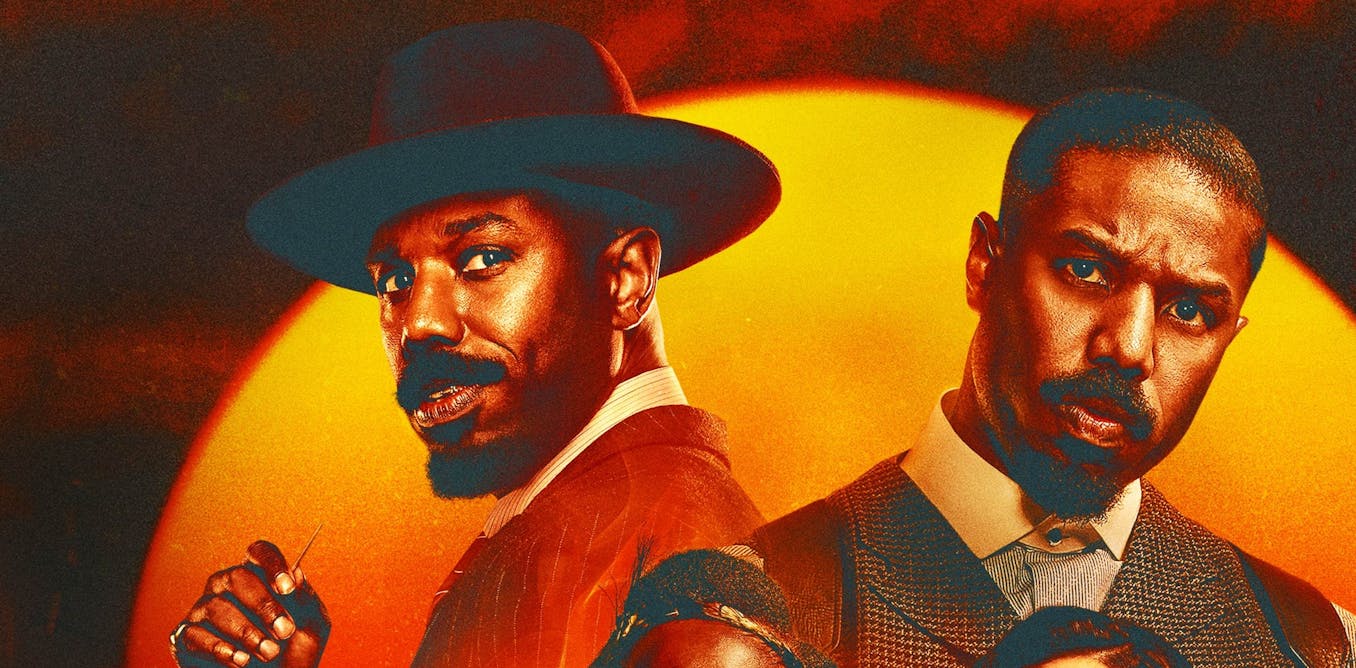We are firmly in the age of the romcom renaissance. Anyone But You, released in 2023 and starring Glen Powell and Sydney Sweeney, for example, grossed USD$220 million (£171 million) globally. I believe this success has seen the rhythms and patterns of the romcom infiltrate films of other genres. These films are not marketed as romantic comedies, but as action or comedies.
Netflix original Hit Man (2024) is one example. It tells the story of Gary (also played by Powell), a psychology professor and undercover “hitman for hire”. Gary uses his various disguises as a hitman to catch the people attempting murder, until he has a change of heart after meeting Madison (Adria Arjona).
Another is The Fall Guy (2024). The film’s lead, Ryan Gosling, proclaimed the movie a “love letter to stunts”. It follows Colt (Gosling) as he is framed for murder by the man he acts as stunt double for. All while trying to rekindle a relationship with film director Jody (Emily Blunt).
Both Hit Man and The Fall Guy are headed by leads who have done their fair share of romcoms: Gosling in The Notebook (2004), Crazy Stupid Love (2011) and La La Land (2016) and Powell in Set It Up (2018) and Anyone But You. But the marketing strategists for both films chose not engage with this at all.
Hit Man’s marketing strategy included posting billboards in Los Angeles advertising Gary as a hit man for hire, mimicking the countless law billboards that adorn the city. The Fall Guy leaned into the meta nature of the film (making a film within the film) and released a series of videos connected to that. Gosling and the stunt team also parodied the popular US chat show segment, Carpool Karaoke.
This is in stark contrast to the marketing of Anyone But You, which made use of Tiktok to post moments between the two costars, Sydney Sweeney and Glen Powell to build up an appetite for the chemistry between them. The move was so successful that rumours about a real-life relationship between the actors began to swirl.
The marketing for Anyone But You centred on both the lead actors, in contrast to both Hit Man and The Fall Guy, which focused on the action credentials of the male star, or their performance within the film.
Hit Man and The Fall Guy are examples of what I would call a “male romcom”. They ostensibly bear the same traits as a romcom, but their stories are told through a more masculine lens.
Hit Man’s narrative provides the meet-cute when Madison almost hires Gary to kill her husband. Gary’s concealed identity and purpose is a staple plot device of many romcoms, including How to Lose a Guy in 10 Days (2003) and She’s All That (1999). The final revelation of the truth, leading to a pivotal gesture or scene that cements the relationship, is another romcom classic.
The Fall Guy introduces a relationship that is lost, and the narrative centres on the rekindling of it. In this way it’s similar to other romcoms like Always Be My Maybe (2019) or Before Sunset (2004). Colt’s actions are driven by his desire to impress Jody, and the film concludes with their reunion.
Brian Roedel/Netflix
Perhaps the decision to market these films first and foremost as action comedies rather than romcoms explains their box office performance. The Fall Guy has been categorised as a flop, pulling in just $174 million globally, against its $150 million budget. Hit Man, bought by Netflix for $20 million, made just $3.6 million during its limited theatrical release.
These numbers pale in comparison to the success of out-and-out romcom Anyone But You. But, when it comes to critical and audience responses, there is a bigger gulf. Movie ranking site Rotten Tomatoes show an average critic rating of 95% and audience rating of 90% for Hit Man. For The Fall Guy, this number sits at 81% for critics and 86% for audiences.
When it comes to Anyone But You, however, the audience rating of 87% massively outweighs the critical response – a lowly 53%.
So what’s going on? There is more of a critical bias towards films marketed at women, and therefore a likelihood of it being deemed of lower quality. And despite the male-fronted (and marketed) films including the elements of the romcom, they are framed through the more “masculine” action genre.
The success of these “male romcoms” (despite some hesitation from studios) suggests that the romance genre can work – and even garner critical acclaim – if given a more masculine sheen. But, it’s still the traditional romcom that pulls in audiences.

Looking for something good? Cut through the noise with a carefully curated selection of the latest releases, live events and exhibitions, straight to your inbox every fortnight, on Fridays. Sign up here.

The post “We’re in a golden age of the male romcom” by Christina Wilkins, Lecturer in Film and Creative Writing, University of Birmingham was published on 07/17/2024 by theconversation.com



































Leave a Reply